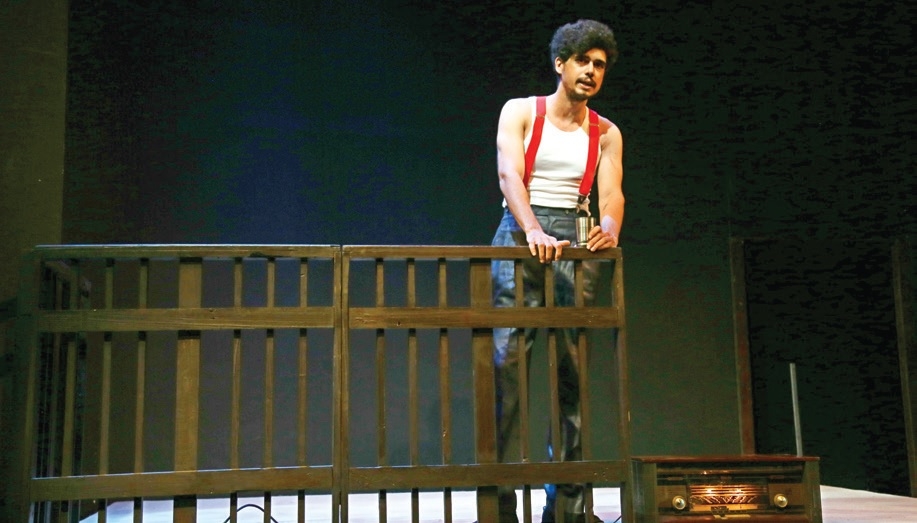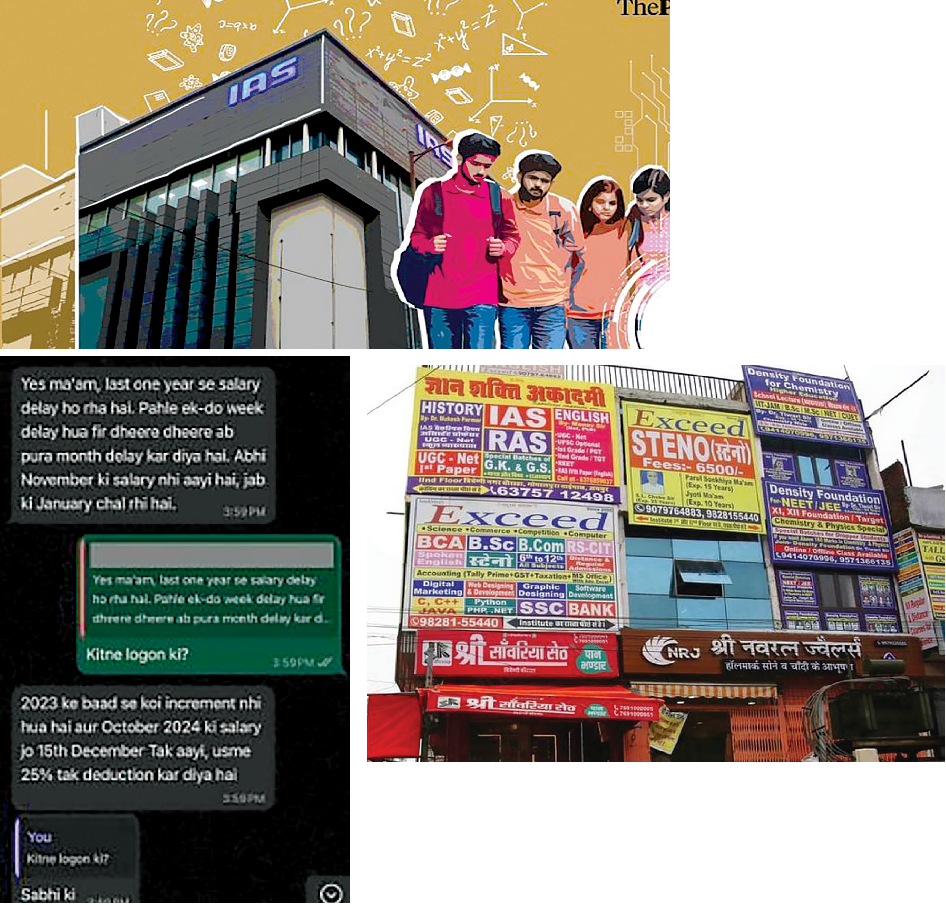
STORIES from the past
Falah Faisal
Bengaluru: Motley is one of the most renowned theater groups in the country and as part of their 44th anniversary they are performing the whole month at Ranga Shankara. The first of which is ‘Manto, Ismat Haazir Hain!’ got underway this Tuesday.
The play consists of three short stories and an essay is divided into two segments. The first half being Manto that dramatises two stories by the legendary writer - Bu and Tetwaal ka Kutta.
Bu (odour) is a solo performance by Imaad Shah as he narrates an intimate scene between a man, Randhir and a christian girl he gives shelter from the rain. The one night stand is described in great detail in a titillating manner as the actor who has walked out in a vest and suspenders slowly dresses up as the scene progresses. The title of the piece takes after the smell that the man c a t c h e s from the w o m a n during the one night stand he can’t ever recapture, even from his wife that leaves him unsatisfied.
The host of the show Ratna Pathak Shah notes that “When we first performed this play in 2003, there was an old man in the audience who dragged his daughter out by the hand saying ‘how can something so obscene be performed on stage.’ So one can only imagine the uproar it might have created when it was first published in the last century.”
She also states that Manto was tried for obscenity a total of 6 times during his career. The next story is Tetwaal ka Kutta, performed by Sahil Vaid, is a satire about war that tells the story of a dog caught between two warring armies at the border between India and Pakistan. Having to prove his loyalty to either side over an imaginary line humans have drawn in the sand. Vaid effortlessly switches accents to perform the parts of soldiers from either side of the border.
Tetwaal ka Kutta was a story that’s far more horrific than Bu in nature but one that was never brought up for obscenity that leaves you wondering what is really obscene love or war? After the interval we dive into Ismat Chugati’s tales, the most popular of which was Lihaaf (The Quilt). Ratna says “This story got so popular that no one cared about anything she wrote before or after.”
Performed by Heeba Shah, the story painfully recounts the story of a girl who when left at a relatives place witnesses scenes of lesbianism first hand, something she can’t comprehend and hence hides in fear under her quilt. The whole cast finally comes together for the performance of Un Byaahataon Ke Naam based on an essay by Chugati that recounts the obscenity trial she and Manto had to face in the Lahore High Court and how they braved the odds.
It makes you wonder where the obscenity really lies - in the writer’s words or in the minds of those who read the stories and interpret them so? The play feels far more relevant today than when it was first written as we see the daily trials and arrests of activists, journalists and writers today over obscure reasons.
The performance in the end is dedicated to those wrongfully imprisoned as the audience stands up to give a standing ovation. Imaad Shah says “Back then it was the British government that was trying them under the influence of some rich and influential people. The stupidity of the cases were so evident at that time. Now, it is evident but most people don’t do anything about it.” And agrees when asked if he thinks we are living in worse times today than when the stories were set. The play will be formed at Ranga Shankara all through the week, with two shows on the weekend. You definitely want to catch this as it’s a perfect reflection of the times we live in.
 English daily published in Bengaluru & Doha
English daily published in Bengaluru & Doha






